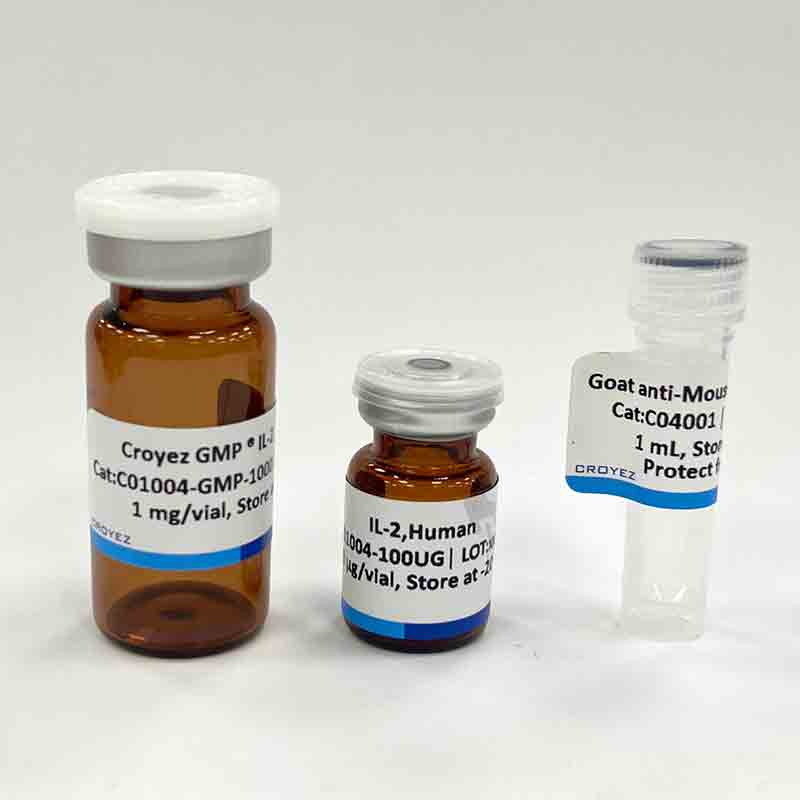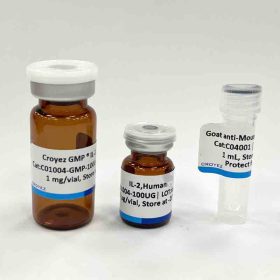Interleukin-17A is a protein that in humans is encoded by the IL17A gene. The protein encoded by this gene is a proinflammatory cytokine produced by activated T cells. This cytokine regulates the activities of NF-kappaB and mitogen-activated protein kinases. This cytokine can stimulate the expression of IL6 and cyclooxygenase-2 (PTGS2/COX-2), as well as enhance the production of nitric oxide (NO).
Sequence:
MAAIIPQSSACPNTEAKDFLQNVKVNLKVFNSLGAKVSSRRPSDYLNRSTSPWTLHRNEDPDRYPSVIWEAQCRHQRCVNAEGKLDHHM
NSVLIQQEILVLKREPESCPFTFRVEKMLVGVGCTCVASIVRQAA with polyhistidine tag at the C-terminus
Source:
Escherichia coli
Endotoxin Test:
<0.1 EU per 1 μg of the protein by the LAL method.
Activity:
Measure by its ability to induce IL-6 secretion in 3T3 cells. The ED50 for this effect is <1 ng/mL. The specific activity of recombinant mouse IL-17A is > 1 x 106 IU/mg.
Purity:
>98% as determined by SDS-PAGE. Ni-NTA chromatography
Formulation:
The protein was lyophilized from a solution containing 20 mM sodium citrate, 0.2 M NaCl, pH 4.5.
Reconstitution:
It is recommended to reconstitute the lyophilized protein in sterile H2O to a concentration not less than 100 μg/mL and incubate the stock solution for at least 20 min to ensure sufficient re-dissolved.
Storage:
Lyophilized protein should be stored at -20°C. Upon reconstitution, protein aliquots should be stored at -20°C or -80°C.
Note:
Please use within one month after protein reconstitution.





